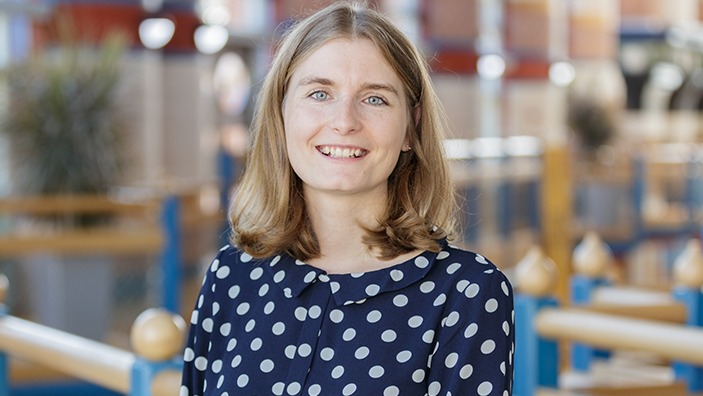PhD students on the academic job market
The following Cambridge Judge Business School PhD students are currently seeking academic positions. Similar recent PhD graduates have taken postdoctoral or faculty positions at leading research institutions such as Erasmus, IESE Business School, London Business School, Warwick Business School, Imperial College Business School, University College London and INSEAD Asia.
Zhenkai Ran
Zhenkai is a PhD candidate in Finance at Cambridge Judge Business School and was a visiting research scholar at the Cornell SC Johnson College of Business. He is supervised by Professor Andrei Kirilenko and Professor Raghavendra Rau. He holds an MPhil in Economic Research from the Faculty of Economics, University of Cambridge. Zhenkai’s research focuses on corporate finance and fintech.

Job market paper
“Managerial (in)attention to financial markets”
I develop a direct measure of managerial attention to financial markets using managers’ own discussions of market conditions during earnings calls, covering nearly all U.S. public firms from 2007 to 2023. Attention varies widely across firms, across industries, and within firms over time. Managers who pay greater attention to markets exhibit higher investment–price sensitivity. Attention also enhances managers’ ability to access external capital when financing needs arise, at least by enabling them to respond more effectively to changing market conditions. These findings provide the first direct evidence, based on revealed managerial behavior, supporting price feedback theory and market-timing theory. I further develop and empirically demonstrate that a simple rational-inattention model explains why such heterogeneity in attention can arise endogenously, completing the causal chain linking market informativeness, attention, and corporate decisions. Finally, attention offers a behavioral explanation for the large cross-sectional dispersion between true and perceived costs of capital documented by Gormsen and Huber (2024).
Lucy Caines
Lucy’s research explores how innovations spread between places and over time, with a focus on ‘Technology for Good’ settings. Employing wide-ranging qualitative methods, she explores this theme across empirical domains including digital banking, climate technologies, peacebuilding, and social entrepreneurship. Lucy is motivated to understand how organisations can address major societal challenges by strategically adapting innovative practices and ideas from one context – whether geographical, temporal, cultural, or industry – to another. Her research is fully supported by an ESRC Doctoral Training Partnership studentship.
Lucy completed her undergraduate studies in History at Trinity College, University of Cambridge. She also holds an MA from the Committee on International Relations at the University of Chicago and an MPhil in Innovation, Strategy and Organisation from Cambridge Judge Business School.
Prior to returning to research, Lucy worked as a strategy and management consultant with a focus on public services, charitable organisations, and innovation agencies. She has additional consulting, investing and mentoring experience with a wide range of social impact startups.

Job market paper
“Launching Nigeria’s ‘first fully digital bank’: the institutional translation of disruptive practices”
(Co-authored with Paul Tracey, Olajumoke Fatoki and Yvonne Lardner)
Prior studies of translation – “the process in which ideas and models are adapted to local contexts as they travel across time and space” (Lamb & Currie, 2012: 219) – typically focus on how organisations modify translated practices to align with the local institutional environment. How then can organisations translate practices with a view to radically reshaping established industries and their wider institutional contexts?
We explore this puzzle of how organisations translate disruptive practices through an in-depth study of Nigeria’s “first fully digital bank”. The rapid spread of digital banking across the industry had significant commercial and societal ramifications by transforming the ease of accessing banking services. We draw on >50 interviews and >3000 documents and social media posts to develop a process model conceptualising a distinct and significant form of ‘disruptive translation’: ie where the introduction of practices poses a significant destabilising threat to the industry setting and actors within it. We challenge core assumptions in prior translation literature about the imperative to generate ‘fit’ between newly introduced practices and the local context. Our findings also enhance understanding of (digital) innovation processes in emerging economies and contribute to the literature on disruptive innovation.
Monika Żebrowska
Monika is a PhD graduate whose research seeks to advance more human-centric perspectives on work, organising, and institutional dynamics. She is interested in exploring how humans relate to their work, organisations, and institutions, how they derive meanings and value from them, and conversely, how such engagements and motivations shape institutional and organisational processes. In relation to this, her research predominantly focuses on craft and community organising to explore the resilience, continuity, and complexity of cherished social structures.
Before her PhD at Cambridge Judge Business School, Monika earned an MPhil in Innovation, Strategy and Organisation at the University of Cambridge and a BA in Business and Management from Durham University.

Job market paper
“Hooked on a thread: meaningful craft livelihoods as a pathway to craft resilience”
Recent research on craft suggests it is resurging and thriving. We argue instead that craft practice is naturally fragile and difficult to sustain in modern society. While previous research has explored tensions related to craft’s fragility, we lack understanding of how practitioners navigate such tensions in ways that enable them to sustain their commitment to craft in the face of growing technological affordances and changing meanings. We explore this issue by studying a community of 500+ lacemakers in rural Poland who have continued their craft across generations. We find that craft resilience depends on the ability of practitioners to nurture meaningful craft livelihoods over time. Such livelihoods depend on the attachment of multiplex meanings to craft practice, which is sustained by 2 mechanisms: protecting community ownership over craft practice and cultivating respect for craft practice. Our study adds to the growing literature on craft by drawing attention to its inherent fragility in post-industrial society and by theorising how craft practices are made resilient through the protection of ‘purity’ and adaptation to changing conditions. We point to avenues for further cross-fertilisation between the craft and practice literature.

